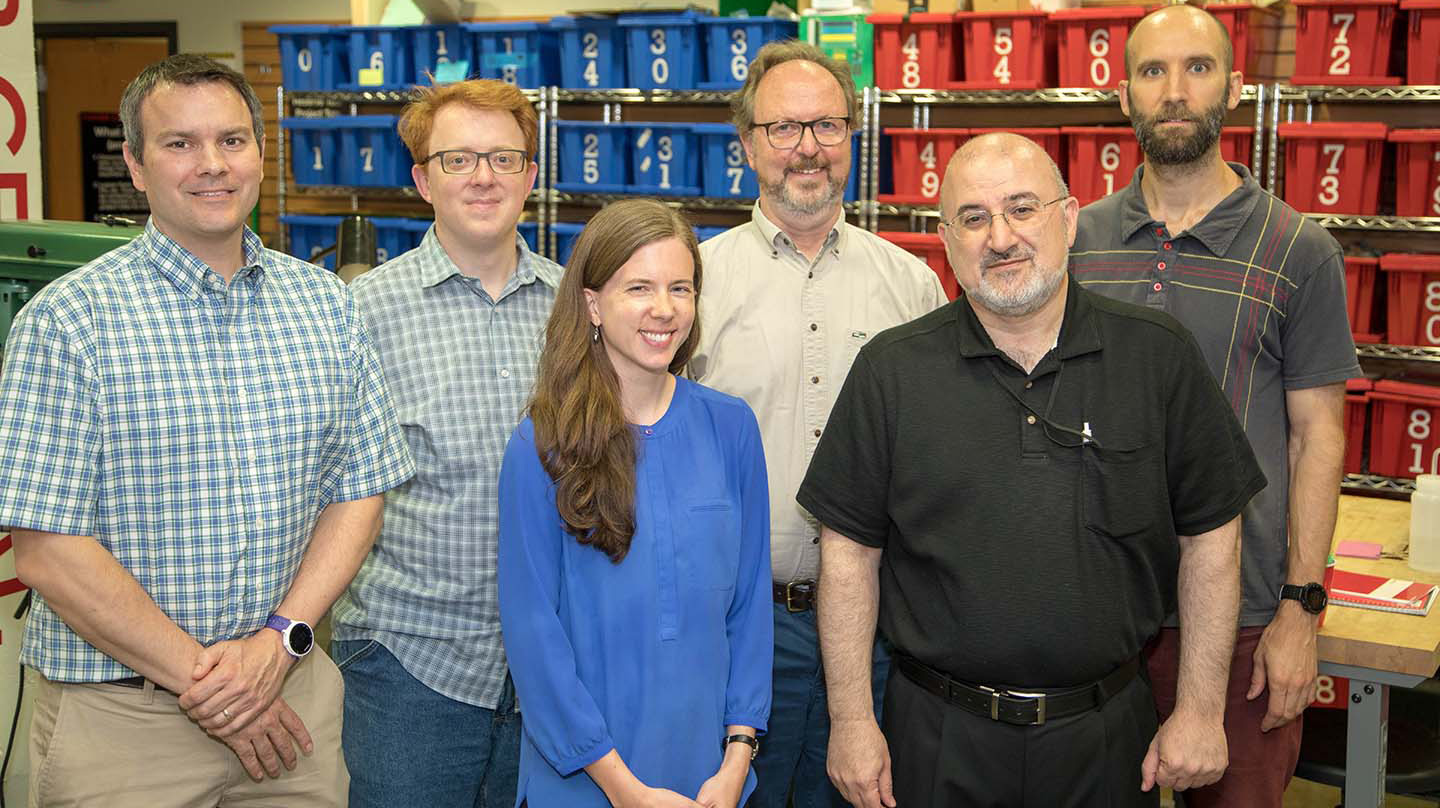Press Release
Six APL Scientists Receive JHU Research Grants
Six scientists from the Johns Hopkins University Applied Physics Laboratory (APL) in Laurel, Maryland, are among the researchers across the Johns Hopkins enterprise to receive funding in the fourth round of the JHU Discovery Awards program.
The program was launched in 2015 by JHU President Ronald Daniels, Provost Robert Lieberman and the deans and directors of the academic divisions to spark new, synergistic interactions between investigators across the institution and lead to work of the highest quality and impact.
This year the program attracted 190 proposals, from which 30 teams — each composed of members from at least two Johns Hopkins divisions — received awards of up to $100,000.
Diagnosing Concussions
Clara Scholl, a neuroscientist in APL’s Research and Exploratory Development Department (REDD), is heading up a team that includes two researchers from Johns Hopkins Medicine, on a project to identify auditory signals that might shed light on the short- and long-term consequences of mild traumatic brain injury (mTBI). A concussion is a common type of mTBI, and it is diagnosed based on symptoms reported by the patient. But there is no specific test to diagnose a concussion or to assess and measure its consequences and assist with prognosis.
“Preliminary evidence suggests that electrophysiological signals from the auditory system may be a diagnostic signal of neural injury following mTBI, suggesting the feasibility of leveraging audiological assessments in combination with novel analysis algorithms for detecting and characterizing neural injury and recovery trajectories following mTBI,” Scholl explained. “A key component of our proposed work focuses on developing noninvasive electrophysiological markers with prognostic value in clinical care. Our ultimate goal is to identify signals informative of short- and long-term consequences of mTBI.”
Sequencing Genes
This is the second Discovery Award for Christopher Bradburne, a research biologist in APL’s Asymmetric Operations Sector. He is on a team with members from Johns Hopkins Medicine and the Whiting School of Engineering seeking to use long read sequencing to find causative genetic variants in patients with rare diseases.
“We will work with JHU clinicians to sequence members of three families in the Baylor-Hopkins Center for Mendelian Genomics, to uncover conditions that have not been solved by standard sequencing technologies,” he said.
Irradiating Brain Tumors
Three REDD researchers — electrical engineer Ra’id Awadallah and physicists Jacob Alldredge and Andrew Strikwerda — will team up with clinicians from Johns Hopkins Medicine to create a holographic metamaterial lens that enables focusing of microwave radiation to subwavelength (sub 1 cm) spots inside the brain, while bypassing the skull and other tissue.
“This would enable noninvasive irradiation of brain tumors, allowing their treatment without invasive brain surgery,” Alldredge said. “We will also explore the possibility of creating an additional metamaterial structure at different wavelengths to selectively gather thermal microwave emissions from the irradiated spot, allowing noninvasive and non-MRI measurement of the temperature to enable a simple and low-cost total system solution.”
Searching for the Dark Sector
Robert Schaefer, another physicist in APL’s Space Exploration Sector, is teaming up with a professor in the College of Arts and Sciences to search for the cosmic dark sector.
“Many lines of evidence in current cosmological research and observations point to the existence of a ‘dark sector’ that contains dark energy and dark matter, but its composition remains unknown,” Schaefer said. “This project will develop tools to do a generalized search of the properties of the dark sector using a statistical approach, and apply them to the current observational data to delineate the properties of the dark sector.”
“This year’s proposals attested to the intellectual creativity and collaborative spirit of our university,” said JHU President Daniels. “With these awards, faculty will have the freedom to pursue new avenues for discovery with colleagues across our community, and to take up the most pressing questions we face as a society.”
The 2019 awards cycle will open in January.
